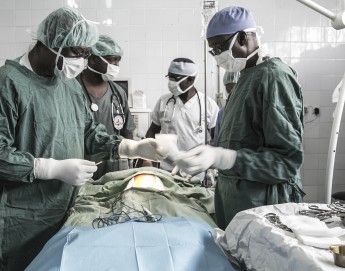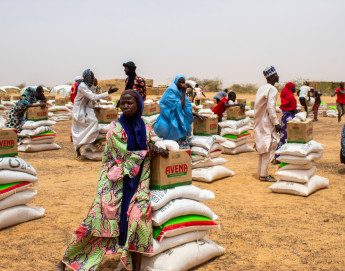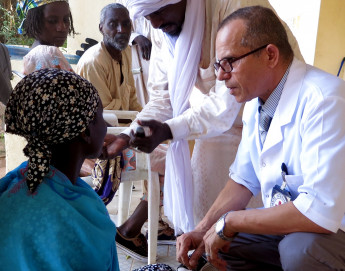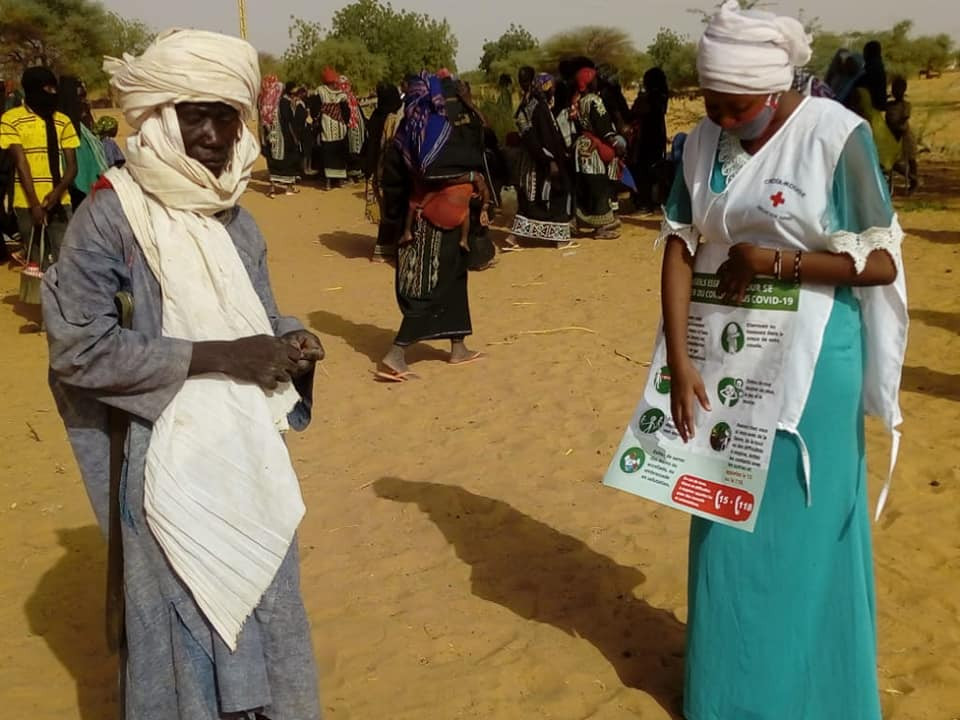
Working together for safe access during the COVID-19 pandemic: The Red Cross Society of Niger and the ICRC

The International Committee of the Red Cross (ICRC) – working closely with National Red Cross and Red Crescent Societies – developed the Safer Access Framework (SAF) between 2002 and 2003. The SAF supports National societies to prepare for and respond safely and effectively to humanitarian needs in sensitive and insecure contexts.
The SAF is relevant for National Societies at all times, not only during situations involving violence – because securing and maintaining safe access is essential. But in order to secure such access, National Societies have to first earn the trust and acceptance of both people and communities in need and those who control access to them.
The SAF can help National Societies to deal with challenges related to perception, acceptance, security and access, whenever and wherever they may arise, and to manage security risks in their day-to-day operations. To ensure their relevance, SAF measures are regularly updated, in step with National Societies' experiences.
Niger: A case in point
National Societies already familiar with the SAF were at an advantage in responding to the COVID-19 pandemic. Volunteers at the Red Cross Society of Niger have had secure access since the onset of the pandemic. Adamou Amadou Tidjani, Communication Coordinator at the National Society, is convinced that this is largely because contacts were developed in communities on the basis of SAF principles of communication.
Knowing the importance of engaging with communities while respecting their cultural and religious beliefs, Amadou and his team organized TV and radio spots immediately after the outbreak of COVID-19. "Those spots were really important in facilitating our safe access," says Amadou. "They helped to sensitise people about the National Society's role in responding to COVID-19."
National Society volunteers were trained not only in the use of personal protective equipment (PPE), but also in explaining to family members and religious leaders how to conduct dignified and safe burials during the pandemic. This training was essential for dealing with the resistance that volunteers encountered at the beginning of the pandemic when people did not fully accept infection-control measures, especially during burials.
"Sometimes the families remained hostile and threatening until the last mile to the graveyard," says Mahamadou Moussa Ide, a National Society volunteer. "But we kept explaining how important it was to protect themselves. And we offered psychosocial support to people who had lost relatives to COVID-19. We even managed to persuade some people to wear PPE so that they could attend burials."
"In the communities where we had been working, and where we had already carried out activities and used the SAF to explain the Red Cross mandate, people knew what the emblem meant," says Amadou.
"Our Red Cross bibs and the way we talked to people helped as well. People gave us access and our work was accepted. We produced videos on stigmatization and on burials, to reassure people that we were showing respect for their customs and their religious beliefs. In fact, because of the pandemic, more people now know about the Red Cross Society of Niger."
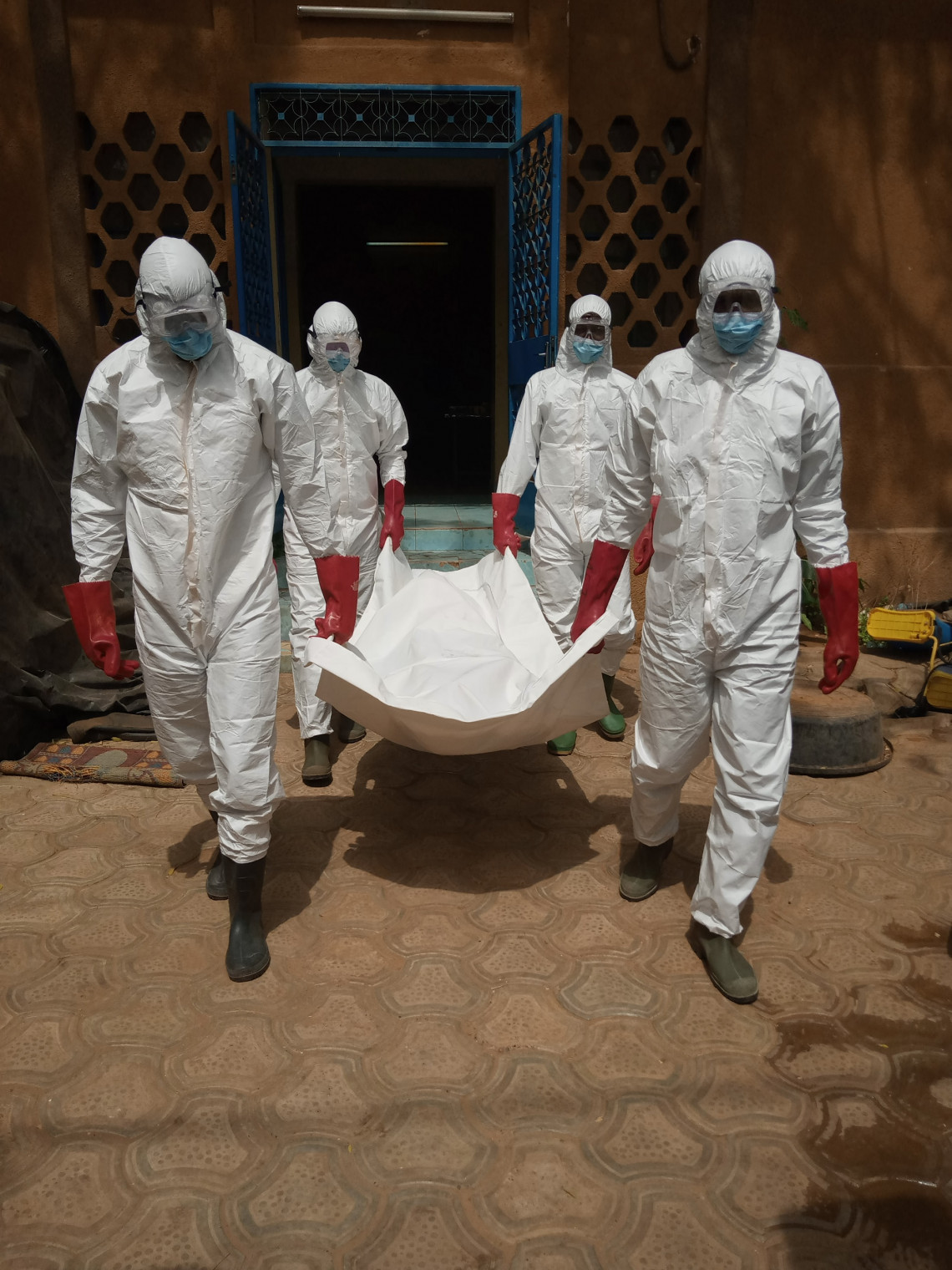
Mahamadou agrees: "In communities where the National Society was virtually unknown, people – filled with suspicions – threw stones at us. But we used what we had learnt through the SAF to explain to them what we do, why, and how we do it. And because of that, we were given access, and the space to do our work."
"We were able to respond even in areas where security conditions were volatile – places like Tillaberi, at the border with Mali and Burkina Faso. Our volunteers were well prepared. We carried out risk assessments and followed strict procedures. The families were alerted to our visits, and disinfected their homes in advance; the concerned family members were told how the funeral rituals would be adapted. We reached a lot of communities throughout the country and we did it safely."
The way ahead
The SAF is part of the ICRC's long-term commitment to strengthening the capacities at National Societies and supporting their efforts to engage communities and deliver humanitarian services. As in Niger, National Societies elsewhere will apply SAF principles to develop two-way communication – on which to build trust and foster acceptance and security, precursors to safe access – and create community-based solutions.
The COVID-19 pandemic confronts the International Red Cross and Red Crescent Movement with an unprecedented set of challenges. But it has also created an opportunity for the Movement to put SAF knowledge into practice and optimise its response to a major public health crisis.

